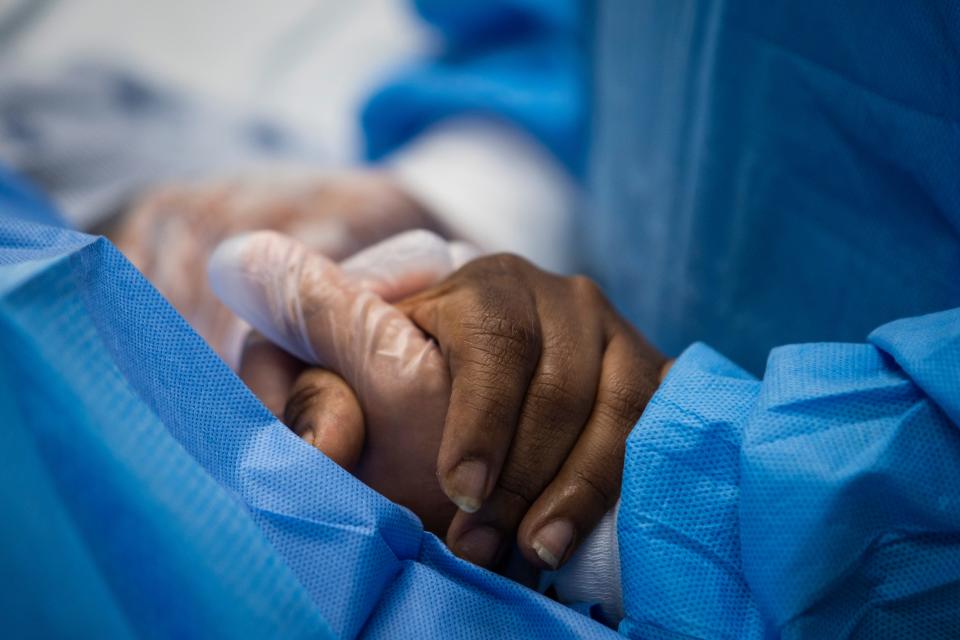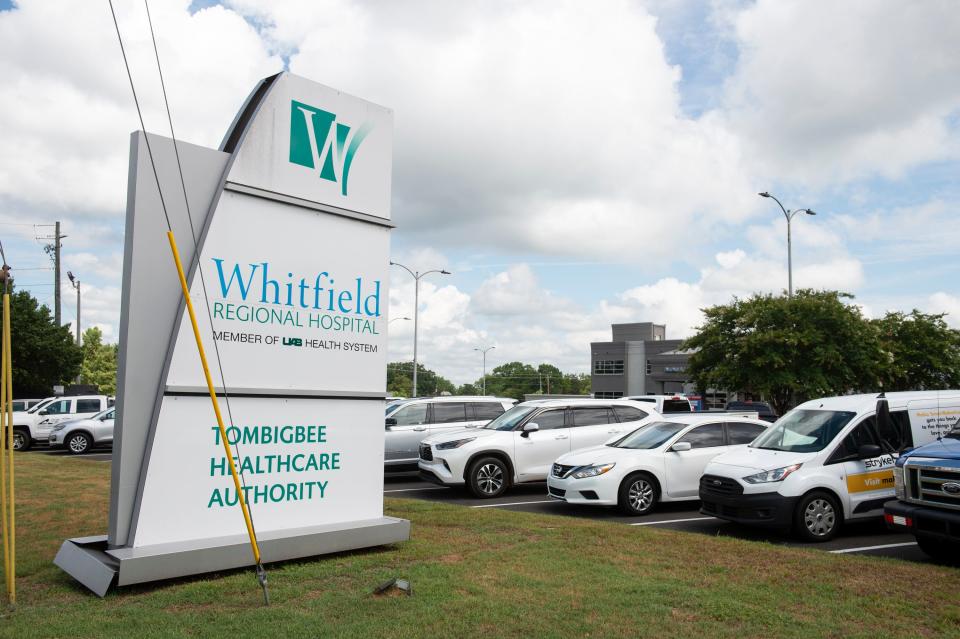Rural health care providers receive over $7 million in emergency grants from Alabama USDA
“A ZIP code should not determine the quality of medical care someone receives.”
Directors at the United States Department of Agriculture have said it, rural physicians have said it and even health care giants such as former Kaiser CEO Bernard Tyson agreed.
Still, in 2019, Harvard University researchers found that ZIP codes can be just as important determinants of health as genetic code — decidedly setting rural and low-income areas at the disadvantage.
For many, the COVID-19 pandemic put this fact on display, as roughly 100 more people per 100,000 in rural areas have died of the virus compared to urban areas in that time. The pandemic also highlighted the cracks in rural health infrastructure: outdated equipment, lack of regional communication, crumbling facilities and lagging distribution systems for vaccines.
To address these concerns and others, today, the USDA announced $7.3 million in emergency rural health care grants coming to rural Alabama.
Eleven facilities across the state will receive funds for repairs and improvements, and the USDA estimates that nearly 200,000 rural Alabamians will benefit from them.

“Being able to access modern health care facilities factors into whether a family decides to live in our rural communities,” USDA Rural Development Alabama State Director Nivory Gordon said. “Certainly, we want to have as many opportunities in rural communities as we have in urban areas. That’s where the agency comes in to help these communities, and we feel proud to call Alabama our home.”
Each facility is either on the “recovery” track, meaning the funds will provide direct relief to address consequences of COVID-19, or the “impact” track, meaning the grants will go toward solving regional problems and supporting sustainable rural health,
Gordon said the funds are readily available and will be disbursed “fairly quickly” once facilities provide the required paperwork.
Here are the 11 projects in Alabama that will receive the $7.3 million in total grants.
Troy Hospital Healthcare Authority, $120,000
In Pike County, the Troy Hospital Healthcare Authority will use its grant to install an energy-efficient heating, ventilation and air conditioning system in the Troy Regional Medical Center. According to plans, the system will help reduce exposure to COVID-19 and other airborne contagious illnesses in the hospital while also reducing energy costs. The USDA says this investment will benefit 32,889 rural residents in Pike County and surrounding areas.
Russellville Hospital, $1 million
With one of four emergency rural health care grants of this size distributed in Alabama, Russellville Hospital will use its $1 million to continue "vital primary care" to residents in rural Franklin County. The hospital will undergo a variety of renovations and purchase medical supplies that depleted throughout the pandemic. A statement from the USDA says the upgrades will "help to protect against future pandemics" and will benefit 9,830 residents in the area.
Russell Hospital Corporation, $426,600
In Tallapoosa County, the Russell Hospital Corporation will use its $426,600 grant to reimburse revenue lost during the COVID-19 pandemic. Over the last two and a half years, the Russell Medical Center in Alexander City expended funds to establish testing sites, operate vaccine clinics and purchase personal protective equipment. This investment will benefit 66,737 rural residents in Tallapoosa County and surrounding areas, according to the USDA.
Bullock County Development Authority, $299,600
The Bullock County Development Authority will use its grant to purchase a vehicle that will serve as a mobile health care clinic. This vehicle will provide outreach to the community. It will be a mobile place where licensed medical professionals in the county can offer residents COVID-19 vaccines, COVID-19 testing, primary care services and management of chronic health problems. This investment will benefit 5,612 rural residents in Bullock County and surrounding areas, according to the USDA.
Healthcare Authority of the City of Greenville, $1 million
With the second of four $1 million emergency rural health care grants distributed in Alabama, the Greenville Healthcare Authority will to reimburse a portion of its lost health-care-related revenue from during the COVID-19 pandemic. As part of Greenville's response to the pandemic, the health care authority set up testing sites, ran vaccine clinics and purchased personal protective equipment. This grant will cover some of those costs, and the USDA says it will benefit 8,135 rural residents of Butler County and surrounding areas.
Tombigbee Healthcare Authority, $910,000
In Marengo County, the Tombigbee Healthcare Authority will use its $910,000 grant to replace the Whitfield Regional Hospital's boiler system. A statement from the USDA said this replacement is a requirement for the hospital to remain in operation. The previous boiler system had a mechanical failure that required Whitfield to rent a replacement for an extended period of time, costing a significant amount of money. This investment will allow the hospital to lessen expenses, and it will benefit 21,027 rural residents of Marengo County and surrounding areas, according to the USDA.

City of York Healthcare Authority, $114,000
The City of York Healthcare Authority operates Hill Hospital, the only hospital in Sumter County. The health care authority will use a $114,000 grant to increase capacity for COVID-19 and other contagious illness vaccine distribution by purchasing a vehicle to transport clinical staff and a utility truck to transport equipment to vaccination sites. The funds will also go toward providing medical supplies such as personal protective equipment and purchasing videoconferencing equipment to increase the telehealth capabilities of the hospital. This investment will benefit 13,763 rural residents of Sumter County, according to the USDA.
Marion Medical Center, $437,500
In Marion County, Marion Medical Center will use its $437,500 grant to establish a specific area within the hospital for the treatment of COVID-19 patients. This area will feature a new heating, ventilation and air conditioning system and other specialized equipment. This unit will allow MMC doctors to provide centralized and isolated treatment of patients with COVID-19 and other contagious diseases. This investment will benefit 6,885 rural residents of Marion County, according to the USDA.
Healthcare Authority of Winfield, $1 million
Also in Marion County, the Healthcare Authority of Winfield will use its $1,000,000 grant to renovate 10 rooms at the Northwest Regional Medical Center. These renovated rooms will be used to house long-term COVID-19 treatment patients, a rehabilitation unit and other associated care. A statement from the USDA said this investment will benefit 10,978 rural residents of Marion County.
Washington County Health Care Authority, $1 million
The Washington County Health Care Authority will use a grant of $1,000,000 to upgrade the facility's "medical surge effectiveness and capacity in the event of a medical emergency." These upgrades will include a triage area in the hospital's multi-purpose building, equipment to upgrade the hospital's camera security system. Other facility modifications that the funds will go toward are a new helipad, a computerized topography scanner room and upgraded heating, ventilation and air conditioning systems. This project will benefit 1,228 rural residents of Washington County, according to the USDA.
Hadley Hitson covers the rural South for the Montgomery Advertiser and Report for America. She can be reached athhitson@gannett.com. To support her work, subscribe to the Advertiser or donate to Report for America.
This article originally appeared on Montgomery Advertiser: USDA funds 11 rural Alabama health care projects with $7.3 million

